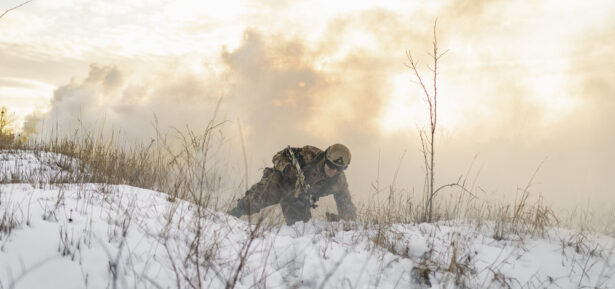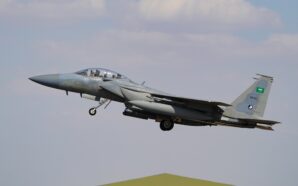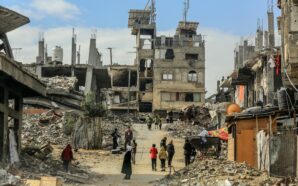
Tensions escalate between India and Pakistan as military strikes and air combat raise fears of a wider conflict in the volatile Kashmir region.
The fragile peace between India and Pakistan appears to be unraveling as both nuclear-armed nations exchanged heavy fire across the Line of Control, igniting fears of a full-scale war. The situation escalated dramatically after Pakistan announced early Wednesday that it had shot down five Indian fighter jets, calling India’s recent missile strikes an “act of war.”
In what Islamabad described as a retaliatory action, Pakistani forces claimed the downing of advanced Indian Rafale jets, responding to New Delhi’s overnight missile offensive. The Indian strikes, dubbed “Operation Sindoor,” reportedly targeted nine alleged terrorist camps in Pakistan-administered Kashmir and Punjab, killing at least 26 people, including women and children, according to Pakistani officials.
Pakistan’s Prime Minister Shehbaz Sharif issued a strong condemnation, stating, “The deceitful enemy has attacked at five locations within our borders. Pakistan reserves every right to respond robustly — and it is responding.”
India, on the other hand, framed its missile campaign as a “pre-emptive strike” following the devastating April 22 terror attack in Indian-controlled Kashmir, which claimed the lives of 26 civilians and one tourist. Indian Foreign Secretary Vikram Misri said intelligence indicated further imminent attacks by Pakistan-based militants. “There was a compulsion both to deter and to pre-empt,” he noted.
Indian officials insisted their strikes were “measured and non-escalatory,” denying any civilian or economic targets were hit. Yet on the ground, accounts from Muzaffarabad and Bahawalpur tell a more harrowing story. Residents reported multiple explosions and damage to homes, mosques, and key infrastructure. Blackouts were enforced in several areas as citizens scrambled to safety.
Both sides traded heavy artillery fire following the strikes. Pakistan reported additional casualties from Indian shelling, while India accused Pakistan of violating a ceasefire by launching attacks into Poonch-Rajauri on the Indian side.
The United Nations expressed grave concern, urging both countries to exercise restraint. “The world cannot afford a military confrontation between India and Pakistan,” said UN spokesperson Stéphane Dujarric.
Meanwhile, protests erupted across Pakistan overnight, with demonstrators torching effigies and chanting slogans against Indian Prime Minister Narendra Modi. In India, political leaders across party lines expressed unity and pride in the armed forces, with Defence Minister Rajnath Singh hailing the operation: “Victory to Mother India!”
Civil aviation has also been affected. Pakistan closed its airspace for 48 hours, causing flight diversions and delays. Indian airline SpiceJet confirmed the temporary closure of several airports in northern India, while Qatar Airways suspended flights to Pakistan.
The UK Foreign Office has updated travel advisories, warning against all travel within 10 kilometers of the border areas and parts of Balochistan. British nationals in the region are being urged to monitor official guidance and contact airlines for travel updates.
This latest round of violence stems from decades of animosity rooted in the partition of British India in 1947 and the ongoing dispute over Kashmir — a region both nations claim in full but control in part. A long-standing insurgency, historical wars, and mutual accusations of harboring militants have kept tensions simmering for decades.
As dawn breaks over the Himalayan foothills, uncertainty looms large. While both countries stress they do not want war, the situation remains dangerously volatile. With military assets mobilized, airspaces closed, and diplomatic tempers flaring, the world watches closely — hoping for dialogue over devastation.
Trump’s Tariffs Are Slowing Inflation—But Not for Long
-
Credit: Shutterstock Minnesota Congresswoman Ilhan Omar has revised her public comments following the release of new video footage related...
-
Credit: Shutterstock Ukraine’s intelligence landscape is entering a bold new phase as President Volodymyr Zelenskyy reshuffles the top ranks...
-
Credit: Shutterstock In a decisive move aimed at safeguarding civilians and preserving Yemen’s unity, the Saudi-led Coalition has confirmed...
-
Credit: Shutterstock A towering 24-meter replica of the Statue of Liberty was brought down by powerful winds in southern...
-
Credit: Shutterstock Europe is feeling the chill of more than just winter weather, as a potent strain of flu,...
-
Credit: Shutterstock In a pivotal moment for global diplomacy, Russian President Vladimir Putin is set to meet U.S. special...
-
Credit: Shutterstock Udaipur witnessed a glittering fusion of Hollywood, Bollywood, and high society this week as global icon Jennifer...
-
Credit: Shutterstock Following a horrifying road accident involving Umrah pilgrims on the Mecca–Madinah highway late Sunday night, India is...
-
Credit: Shutterstock The world is reeling from the irony this week after reports confirmed that over 100,000 trees were...
-
Credit: Shutterstock As Hurricane Melissa tore across the Atlantic, shattering records and testing the limits of modern aircraft, a...
-
Credit: Shutterstock Royal Lodge Shake-Up: Andrew and Fergie Plan Their Exit In a development that has stirred fresh waves...
-
Credit: Shutterstock Hamas Violence Sparks Fears of Peace Deal Collapse Amid Growing Power Struggle in Gaza Alarming new footage...




















